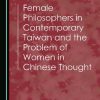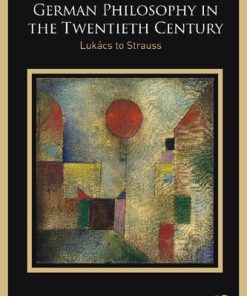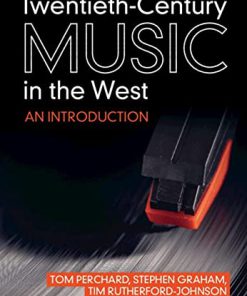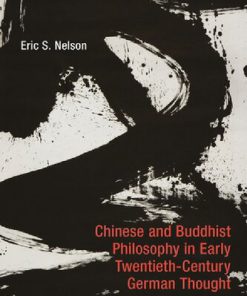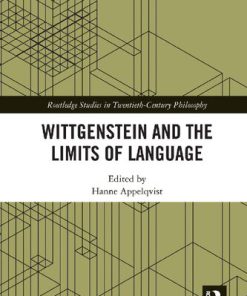German Philosophy in the Twentieth Century 1st Edition by Julian Young ISBN 9781138220010 1138220019
$50.00 Original price was: $50.00.$25.00Current price is: $25.00.
German Philosophy in the Twentieth Century 1st Edition by Julian Young – Ebook PDF Instant Download/Delivery: 9781138220010 ,1138220019
Full download German Philosophy in the Twentieth Century 1st Edition after payment
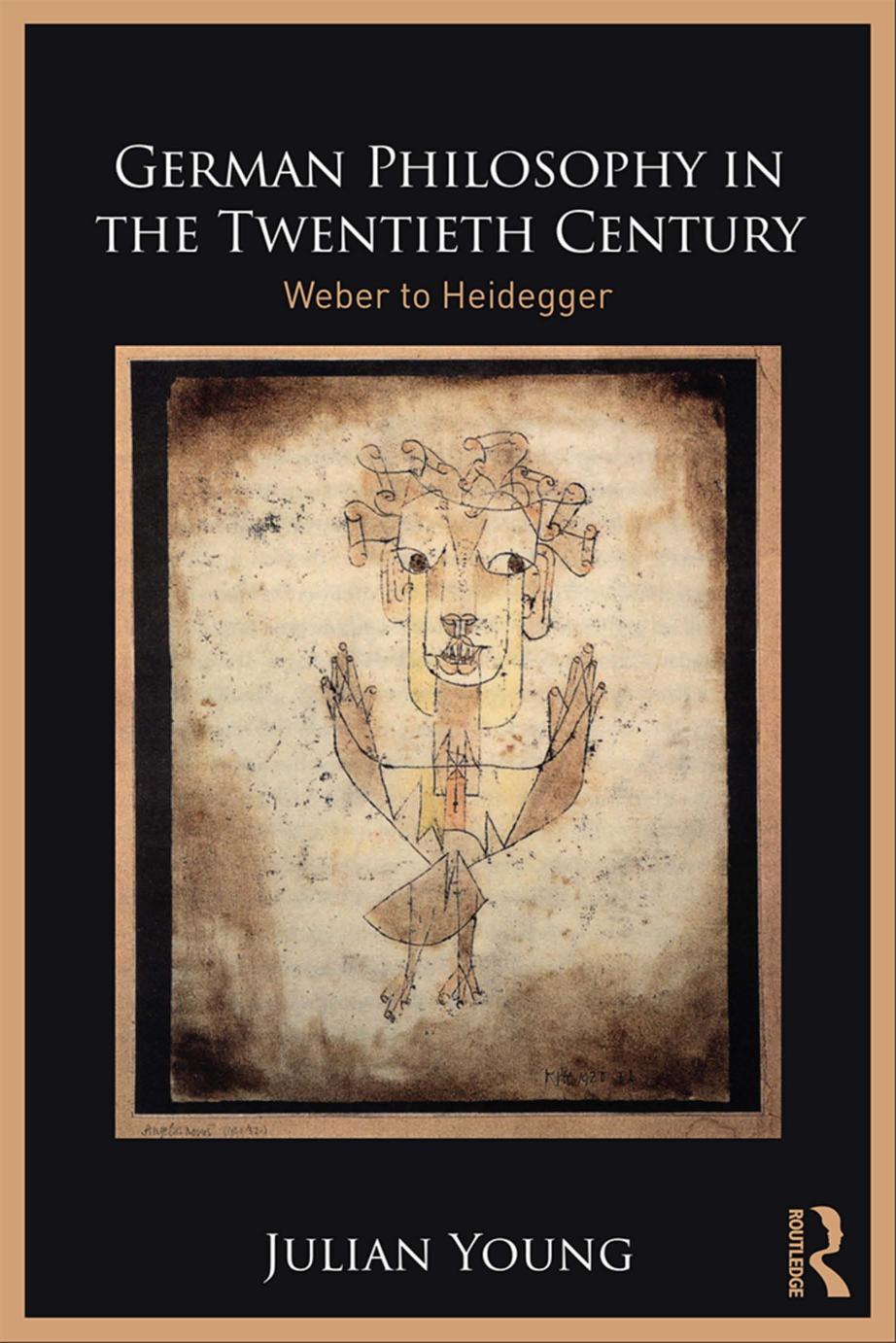
Product details:
ISBN 10: 1138220019
ISBN 13: 9781138220010
Author: Julian Young
German Philosophy in the Twentieth Century 1st Edition Table of contents:
PART I: Frankfurt
1. Weber: Rationalization, disenchantment and charisma
Bureaucratization
Loss of freedom
Life in the iron cage
Loss of meaning
Disenchantment and loss of meaning
Charisma and change
Weber as transmitter of the Romantic critique of the Enlightenment
2. Horkheimer and Adorno: The irrationality of reason
The Marxist heritage
What is critical theory?
Traditional theory
Critical theory
Loss of meaning
The rise and fall of objective reason
The way we are now
Two objections to the alleged meaninglessness of modernity
Loss of freedom
The culture industry
How dated is Horkheimer and Adorno’s critique of the culture industry?
The irrationality of enlightenment
Is negation enough?
The distorting effect of Marxism
Max Weber’s self-deception
3. Habermas: In defence of enlightenment
Habermas’ response to his predecessors
Good rationalization
Discourse ethics
Problems with discourse ethics
Good rationalization and the lifeworld
Bad rationalization: system
Uncoupling
Colonization
Consequences of colonization
The task
Loss of meaning
Loss of freedom
4. Marcuse: Eros and utopia
Diagnosis
Advanced industrial society’s methods of self-preservation
Soul control: the media
Further methods of soul control
One-dimensionality
Eros and Civilization: why Freud?
What Freud says
Freud’s mistakes
Aggression, the death instinct, and the Nirvana principle
Fantasy as the vision of a new world
The content of fantasy
Is Marcuse utopian in a pejorative sense?
Closing the gap between here and there
Kant, Schiller, and the aesthetic basis of a repression-free society
The recovery of ‘polymorphous sexuality’
Non-repressive sublimation
The role of reason in utopia
Non-repressive civilization and nature
The conquest of death
The lineaments of utopia
Hedonism, and the meaning of life
PART II: Freiburg
5. Husserl: Phenomenology and the crisis of humanity
What is phenomenology?
The phenomenological method
The results of phenomenology
The lifeworld
Why is phenomenology important?
The ‘crisis of humanity’ and the ‘crisis of science’
Combating irrationalism
The ‘telos’ of Western history
The wrong turning taken by Western science
Why is scientism mistaken?
How does phenomenology ‘solve’ the ‘crisis of humanity’?
Can the ontology of the lifeworld really ground a universal morality?
Is Husserl’s diagnosis of the ‘crisis of humanity’ correct?
6. Early Heidegger: Existential phenomenology
Being and Time: the project
Method
Being-in
World
Being-with-others
Affectedness and thrownness
Digression on poetry
Projection, understanding, and interpretation
Assertion
Truth
Care
Inauthenticity and the One
Idle talk, ambiguity, and curiosity
Falling
Anxiety
Death
Conscience and guilt
Resoluteness
Temporality as the ontological meaning of care
Temporality and historicality
Heritage
7. Gadamer: Truth versus method
What is philosophical hermeneutics?
Gadamer’s motivation
The aestheticization of art
Play as the clue to the ontology of the artwork
Novels and paintings
Romantic hermeneutics
Gadamer’s critique of Romantic hermeneutics
The hermeneutical circle
Understanding is never final
The rehabilitation of prejudice and the authority of tradition
Text and tradition
Fusion of horizons
Fusion and ethical tradition
Criticisms
Self-refutation?
The historical sense
Does Gadamer confuse interpretation with reconstruction?
Does Gadamer confuse ‘thrownness’ with ‘tradition’?
Is Gadamer’s hermeneutical philosophy too conservative, incapable of criticizing oppressive ideologies?
8. Arendt: The human condition
The human condition
Labour
Work
Difficulties in the work–labour distinction
Difficulties in Arendt’s account of work
World
World as a precondition of individuality
Action
The political
The fragility of human affairs
The motive for action
Authentic politics
Arendt’s critique of modernity
World alienation
Modern science and world alienation
Scepticism, Cartesian doubt, and world alienation
Capitalism and world alienation
Technology and world alienation
The rise of ‘society’
The way we are now
What is wrong with the way we are?
Loss of freedom
Loss of meaning
Gesellschaft versus Gemeinschaft
Canovan’s interpretation
Tradition
Authority
Our loss of tradition
What is to be done?
Arendt’s response to the ‘crisis in education’
The irreparability of the ‘thread of tradition’
Ethical tradition versus Hegelian tradition
9. Later Heidegger: Re-enchantment
Truth and the turning
Metaphysics
The historicizing of being
Homelessness
The violence of modern technology
Loss of the gods
Anxiety and death
The turning
The return of the gods
Becoming capable of ‘the good death’
Gentle technology
The fourfold
Poetry and enlightenment
The ethics of dwelling
Heidegger and Weber
Afterword
Bibliography
Index
People also search for German Philosophy in the Twentieth Century 1st Edition:
german 20th century philosophers
early 20th century german philosophers
german philosophical terms
german philosophy words
german philosophy 20th century
You may also like…
Politics & Philosophy - Anthropology
Politics & Philosophy - Philosophical Positions & Movements
Reframing Twentieth Century French Philosophy 1st Edition Élodie Boublil
Politics & Philosophy - Anthropology
German Philosophy in the Twentieth Century Lukács to Strauss 1st Edition Julian Young
Uncategorized
Politics & Philosophy - Asian Philosophy
Chinese and Buddhist Philosophy in Early Twentieth Century German Thought Eric S. Nelson

